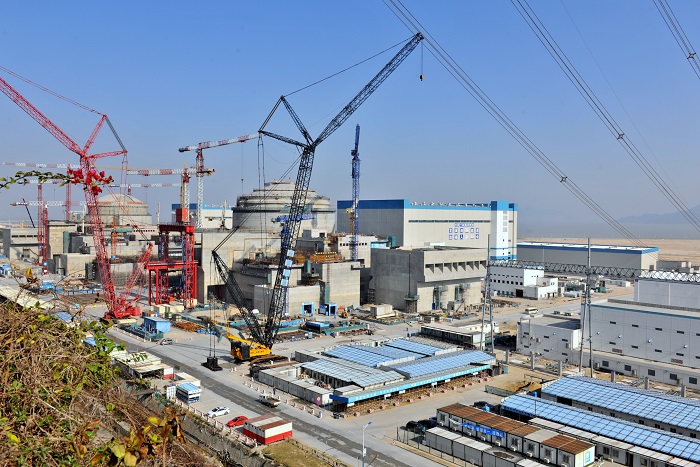A NuScale representative conducts training on the nuclear power plant control room simulator for students and faculty at CAES. (Photo: CAES)
The Center for Advanced Energy Studies (CAES) has announced the opening of the Small Modular Reactor Simulator Laboratory, featuring NuScale Power’s Energy Exploration Center, at its headquarters in Idaho Falls, Idaho. The new lab will increase CAES’s capabilities to train future scientists, engineers, and members of the energy workforce and will be used to educate the public about nuclear energy and reactor technology, according to an August 31 CAES press release.
Sandia's Brad Beeny (left) and Larry Humphries examine remnants from a series of lower head failure experiments. Results from these and other experiments are used to inform nuclear accident modeling computer code. (Photo: Randy Montoya)
Researchers at Sandia National Laboratories have been expanding MELCOR—the severe accident modeling computer code used by the Nuclear Regulatory Commission to evaluate the safety of light water reactors—to study the small modular reactors and non-light-water advanced reactors that are under development. An article published in Sandia Lab News on August 27 describes in detail how MELCOR is being expanded to work with different reactor geometries, fuel types, and coolant systems.








